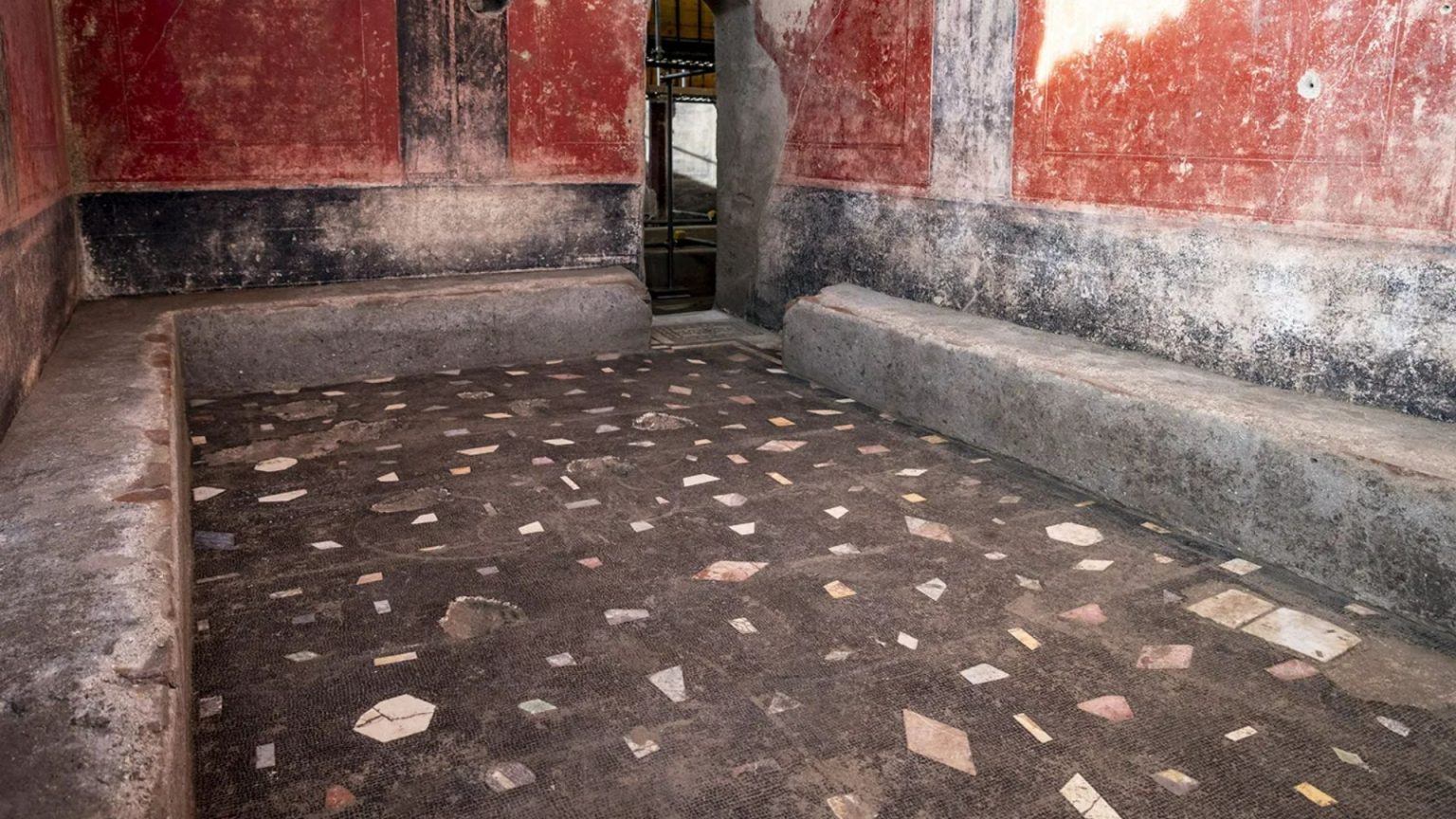The ancient Roman city of Pompeii, tragically buried by the eruption of Mount Vesuvius in 79 AD, continues to yield remarkable discoveries, offering invaluable glimpses into the lives of its inhabitants. A recent excavation in Regio IX, a largely unexplored area of the Pompeii Archaeological Park, has unearthed a luxurious private spa complex within a grand residence, providing a stunning example of the opulence and social dynamics of the city’s elite. This “once in a lifetime” find showcases the importance of bathing and banqueting in Roman society, highlighting how homes served not only as private dwellings but also as stages for public life and displays of wealth and status.
The sprawling spa complex, among the largest and most elaborate discovered in Pompeii, boasted hot, warm, and cold rooms – the Caldarium, Tepidarium, and Frigidarium, respectively – capable of accommodating up to 30 guests. The design and layout of the complex demonstrate a clear influence of Greek culture, reflecting the owner’s aspirations to emulate the grandeur of Greek palaces and gymnasia. Following their bathing rituals, guests would proceed to an adjacent banquet hall, its walls adorned with black frescoes depicting scenes from Greek mythology, where they would dine by candlelight, further emphasizing the fusion of leisure and erudition.
The discovery of this lavish spa complex sheds light on the social customs and values of Pompeii’s elite. Similar to scenes depicted in the Roman novel, The Satyricon, the combination of elaborate baths and opulent banquets served as a powerful means of showcasing wealth and status. The owner of this grand residence sought to create a spectacle, transforming their home into a hub of social activity and self-promotion, where guests could indulge in luxurious amenities and engage in intellectual discussions.
This latest find in Regio IX adds to a growing list of remarkable discoveries in the area, including a bakery, a laundry shop, two villas, and the skeletal remains of three individuals who perished during the volcanic eruption. The ongoing excavations in this previously unexplored region promise to further enrich our understanding of daily life in Pompeii and the devastating impact of Vesuvius’s eruption. The discovery of this private bath complex, in particular, emphasizes the importance of leisure and social interaction in Roman society, illustrating how private residences also functioned as public spaces for entertainment and display.
The unearthing of this extraordinary spa complex offers a captivating glimpse into the luxurious lifestyle enjoyed by Pompeii’s wealthiest residents. The meticulous design and elaborate decoration of the bathing area and banquet hall speak volumes about the importance of leisure, social gatherings, and the pursuit of intellectual and cultural pursuits in Roman society. The owner’s deliberate incorporation of Greek architectural and artistic elements demonstrates a conscious effort to emulate the prestigious culture of Greece, further underscoring the social significance of such displays.
The ongoing excavations in Pompeii continue to unveil remarkable treasures, providing invaluable insights into the daily lives, social customs, and tragic fate of the city’s inhabitants. The discovery of this opulent spa complex not only showcases the luxury enjoyed by the elite but also highlights the importance of social interaction and self-promotion in Roman culture. As archaeologists delve deeper into the unexplored areas of Pompeii, we can anticipate further fascinating discoveries that will continue to enrich our understanding of this ancient city and its captivating history.


